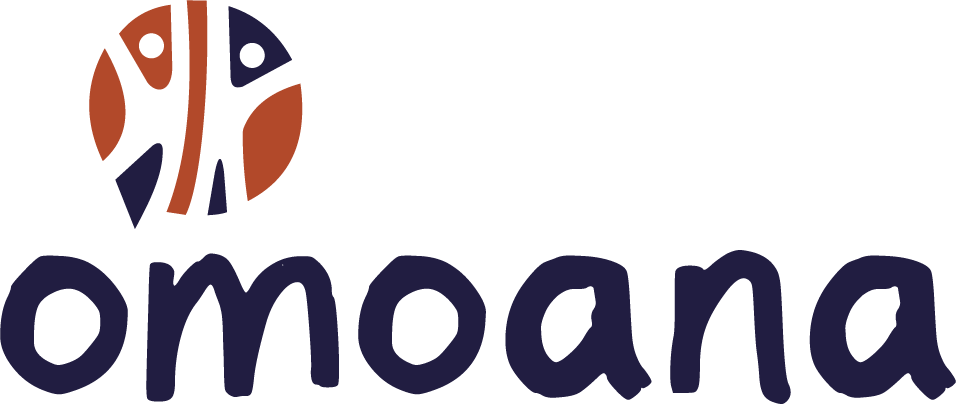It is now 10 years since the first lines of the Omoana adventure were written. Initially focused on supporting the St Moses temporary reception centre, the association has continued to evolve. When the necessary knowledge and funds were acquired, Omoana expanded its scope of action. Projects in the fields of health, microfinance, agriculture and education have since been launched.
I believe that it is a feeling of shared humanity that encourages the various players at Omoana to commit themselves to greater justice. It is the conviction that people from elsewhere, whatever their culture, have the same needs, the same aspirations and the same feelings as we who were born in more generous latitudes.
For it was only the chance of birth that gave me the chance to be born in a peaceful country and to study, to have the opportunity to give my opinion regularly as a citizen and to know that tomorrow I will certainly be able to offer these same hopes to my own children. But knowing that others haven’t received the same gifts for their future somewhat tarnishes this pretty picture and does nothing to soothe my spoilt child conscience. Life is not to be taken lightly, and the lives of others even less so. It was certainly with this in mind that, 10 years ago, the founders of Omoana summoned up all their courage and set up the association.
However, despite Omoana’s successes, all too often, when the subject of development aid is raised with acquaintances, I sense a certain weariness among the people I talk to. They’ve heard of wells built in Africa that have been abandoned, they’re put off by the corruption of governments and other bodies, and the excessive administrative costs of some NGOs have considerably undermined their confidence. Apart from these aspects, I often have the feeling of being considered an idealist, a naive person who still believes in vain in these notions of justice and solidarity. In response to this, I would say that it is essential to assert one’s idealistic nature, because it is the source of commitment and indignation. But I would also say that, while I don’t really believe in global change, I do subscribe to the idea that targeted, effective and sustainable development aid does exist, and that the improvements attributable to it are real.
Because when given the means to do so, the beneficiary communities know how to demonstrate responsibility and investment that compel admiration. They are actors in development, and we must give them the opportunity to achieve the financial sustainability that will enable them to offer the prospect of a promising future to their unborn children. Omoana achieves this through innovative projects that are close to local realities. We are convinced that the keys to responsible development lie in enabling local people to become independent and in working with local organisations that know the context better than anyone else.
However, in order to achieve our objectives, we have needed the support of a great many people since the association was founded. I would therefore like to thank the many individual donors and sponsors. Without your trust and generosity, none of our projects would have been possible. A special thank you to Fribourg Solidaire, because beyond the financial support provided, the sound advice of these experts in development aid is invaluable to us. Likewise, the members of our support committee are essential referees. We are particularly grateful to Ilsemarie Cottier, Maria Rivas and Bernard Préel, as well as Jean Genoud, who give so freely of their experience and time. In this anniversary year, our 10-year activities have been made possible thanks to the support of many organisations. Our thanks go to them, and in particular to Fribourg Solidaire and the municipalities of Bulle and Châtel-St-Denis. The management of the Tour de Trême and Bulle secondary schools and the Collège du Sud have supported Omoana’s efforts for many years and are always ready to open the doors of their establishments to us. Thank you from the bottom of our hearts for giving us these opportunities. A sincere thank you also to all the volunteers who have made themselves available on past and future evenings, and to the speakers at the round table to follow. Their experience in the field and their academic knowledge will enrich the evening. And finally, to ensure that the donations and trust of so many people are put to good use, the Omoana committee is working hand in hand with its local partners. Thank you to each of them, here and in Uganda, for generously giving many hours of their time to coordinate, finance and monitor each of the projects. Special thanks go to Florence Savary, Adrien Genoud and Ruth Lubega, the coordinator of Omoana House, who has come to us especially from Uganda.
10 years is just the dawn of a lifetime. We hope that the seeds planted so far will bear fruit for years to come. Let’s not forget that in our gentle country, every citizen has the opportunity, through outrage, commitment and demands, to express his or her opinions. These are vitally important because they can influence North-South relations, and thus the lives of people elsewhere, who are proving every day, by their strength and involvement, just how much they too want to achieve dignity.


